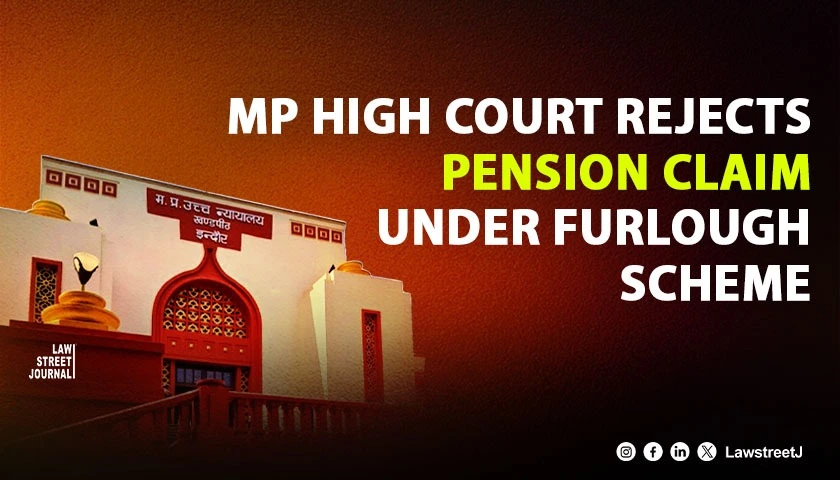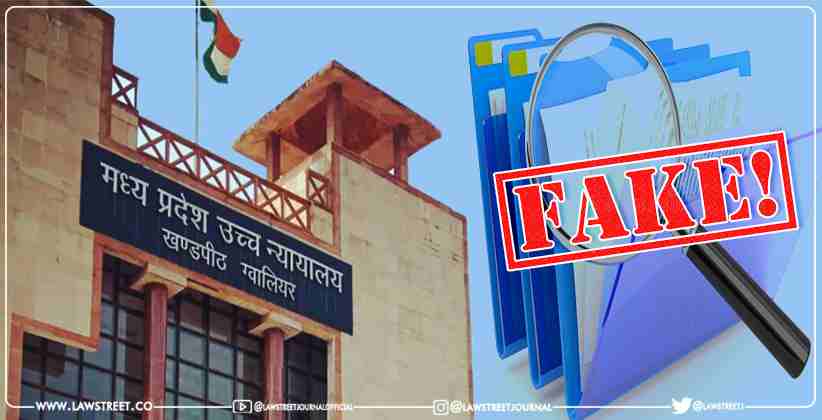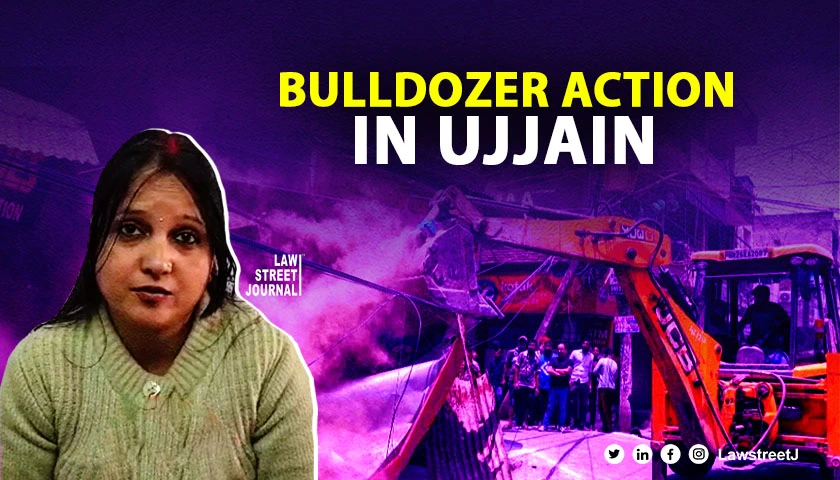Indore: The Madhya Pradesh High Court has dismissed an appeal by a former Revenue Inspector challenging a single judge’s order that rejected his claim for retirement benefits—including pension, gratuity, and leave encashment—under the State Government’s Furlough Scheme.
Acting Chief Justice Sanjeev Sachdeva and Justice Pavan Kumar Dwivedi delivered the judgment on July 14, 2025, in a case that clarifies the scope and limitations of the Furlough Scheme for state government employees.
The court dealt with the writ appeal filed by the appellant, Dhawal, against the State of Madhya Pradesh and others, wherein he sought computation of his service period—including the time spent on furlough leave—for calculating retirement benefits.
The court noted, “The appellant was initially appointed as Revenue Inspector on 14.09.1990 and worked until September 2011. The State Government introduced a scheme, namely the Furlough Scheme, for state government employees.”
Addressing the specific provisions of the Furlough Scheme, the court observed, “Under the said scheme, government employees could go on leave for a maximum period of five years. During this period, they were entitled to engage in private business or employment elsewhere and receive 50% of their salary.”
The court highlighted a crucial clause in the scheme, stating, “The Furlough Scheme itself stipulates that the period spent on furlough shall not be counted towards eligible service for computation of pension.” The court specifically referred to Clause 2.13 of the scheme, which explicitly excludes the furlough period from pension computation.
In a significant observation about the nature of the scheme, the court held, “The Furlough Scheme has to be read as a whole, and an employee cannot claim that only the beneficial parts are applicable while ignoring the restrictive provisions. This approach is unsustainable and contrary to the Rules.”
The court emphasized that employees cannot selectively benefit from favorable provisions while disregarding limiting clauses, pointing out that while the scheme allowed receipt of 50% salary and alternative employment during the furlough period, it clearly excluded this time from being counted towards retirement benefits.
The appellant had argued that the furlough period should be counted based on the Civil Services Pension Rules, 1976, and the Civil Services Leave Rules, 1977, contending that since he availed less than the maximum five years of furlough, the period should be included in service computation.
The court rejected this argument, noting that the Civil Services Pension Rules and Leave Rules do not contain a provision for furlough and therefore, the specific provisions of the Furlough Scheme must apply.
The appellant had initially applied for furlough leave from October 1, 2006, and later sought voluntary retirement on July 1, 2011, after spending approximately four years and nine months on furlough.
Ms. Archana Kher appeared as counsel for the appellant, while Shri Anand Soni, Additional Advocate General, represented the State of Madhya Pradesh.
Case Title: Dhawal vs. The State of Madhya Pradesh and Others




.jpeg)

![Supporting defamatory WhatsApp posts doesn’t constitute involvement in offence of defamation: MP HC [Read Order]](/secure/uploads/2024/09/lj_6675_WhatsApp_Image_2024-09-16_at_12.24.54_PM.webp)




